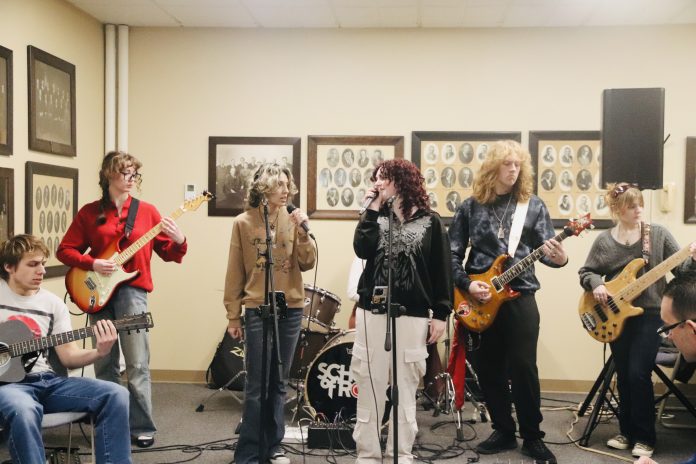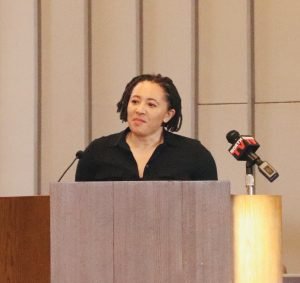

abass@northstarreporter.com
For the 37th year, the Rev. Dr. Martin Luther King Jr. Memorial Committee of Greater Attleboro held a commemorative service to honor the life and work of the civil rights icon.
More than 100 people were in attendance at Attleboro City Hall on Jan. 15 to hear music from the Attleboro School of Rock and speeches from local politicians about the legacy King left throughout the United States.
This year, the committee chose to center the ceremony around environmental rights and how underprivileged communities are subjected to the effects of climate change, such as coastal flooding and air pollution.
In his speech, state Rep. Adam Scanlon (D-North Attleborough) said that while the industrial revolution in Attleboro brought opportunities to residents, it also left a negative impact on the environment. Years of pollution and industrial use in areas have created brownfields–sites that have since been abandoned by developers. Scanlon said that if Dr. King were in Attleboro, he would see opportunity in the brownfields by turning them into green open spaces.
“Dr. King would have looked at these eyesores and seen them as places for opportunity,” Scanlon said. “When we begin to take a back seat and continue to gentrify open spaces, it impacts our most vulnerable populations.”
State Sen. Paul Feeney (D-Foxboro) followed up Scanlon’s speech by telling the attendees that they can help those who live in communities with pollution by listening to their needs. He said anyone can change the world just as King did and it does not require an elected position.
“Whether it’s the fight for equality for the LBGTQ community, whether it be environmental justice, I want you to think about the difference you can make in our lives,” Feneey told the crowd. “You don’t have to sit on the city council, you don’t have to be mayor, lead your own lives.”
Following the commemoration at City Hall, an interfaith service was held at the Evangelical Covenant Church. The service featured performances by the Attleboro High School Mixed Chorus and professional steel pan player Jeffery Clayton.
This year’s keynote speaker was Kalila Barnett, the senior program officer of climate resilience at the Barr Foundation in Boston. In her speech, Barnett said that climate change is directly related to racial justice, arguing that everyone should be able to live in a city or town with open green spaces regardless of their socioeconomic background.
“We are fighting for racial, climate and environmental justice,” Barnett said. “I am sure there are many of you here who are not climate activists, so I hope my words inspire you to learn more.”
Throughout her speech, Barnett said the discussions about climate change and the environment are tough but necessary. She said that King’s work was also uncomfortable for many who supported or opposed civil rights, but the marches,speeches and the organization he built helped the country progress beyond the “status quo” that was set for more than two centuries.
“Now is really the time to set some goals for our community,” Barnett said. “To take better care of one another.”
